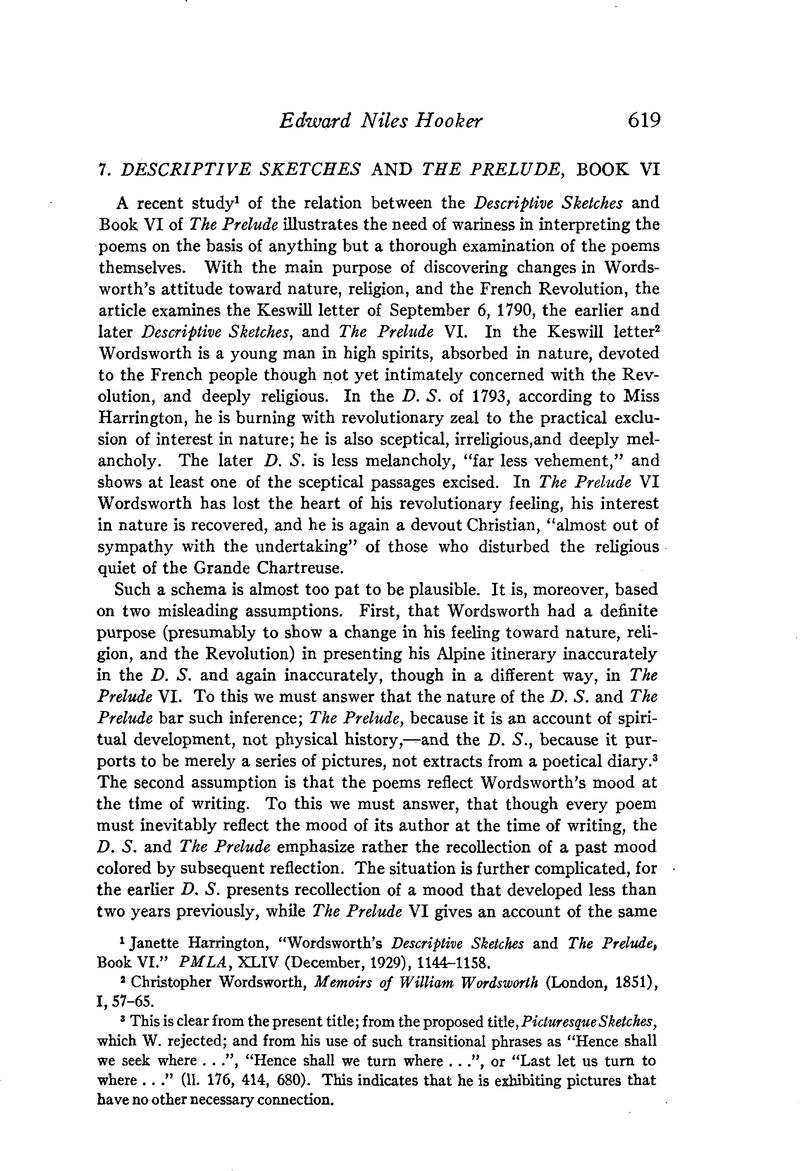No CrossRef data available.
Article contents
7. Descriptive Sketches and the Prelude, Book VI
Published online by Cambridge University Press: 02 December 2020
Abstract

- Type
- Comment and Criticism
- Information
- Copyright
- Copyright © Modern Language Association of America, 1930
References
1 Janette Harrington, “Wordsworth's Descriptive Sketches and The Prelude, Book VI.” PMLA, XLIV (December, 1929), 1144-1158.
2 Christopher Wordsworth, Memoirs of William Wordsworth (London, 1851), I, 57-65.
3 This is clear from the present title; from the proposed title, Picturesque Sketches, which W. rejected; and from his use of such transitional phrases as “Hence shall we seek where . . .”, “Hence shall we turn where . . .”, or “Last let us turn to where . . .” (ll. 176, 414, 680). This indicates that he is exhibiting pictures that have no other necessary connection.
4 De Sélincourt, Wordsworth's Prelude. Book VI (early version), 192-198, 375-378, 477-487.
5 Ibid. VI, 192-193.
6 Ibid. X, 869-870.
7 Legouis, La Jeunesse de William Wordsworth (Paris, 1896), p. 165.
8 Garrod, Wordsworth: Lectures and Essays (Oxford, 1923), p. 51.
9 This interpretation is made necessary when we recall that Wordsworth describes himself at the opening as setting out in hope to find a cure for a wounded heart.
10 D.S. of 1793, ll. 70-71.
11 That Wordsworth was interested in the humanitarian movement before 1790 is indicated in The Prelude X, 245-262.
12 Cf. Legouis, pp. 117-118.
13 Memoirs of William Wordsworth, I, 69.
14 De Sélincourt, pp. 194, 196, 198.
15 Wordsworth's growing powers have given the later version of this passage even greater eloquence and power. Vide de Sélincourt, p. 195.
16 The Prelude IX, 245-262.


